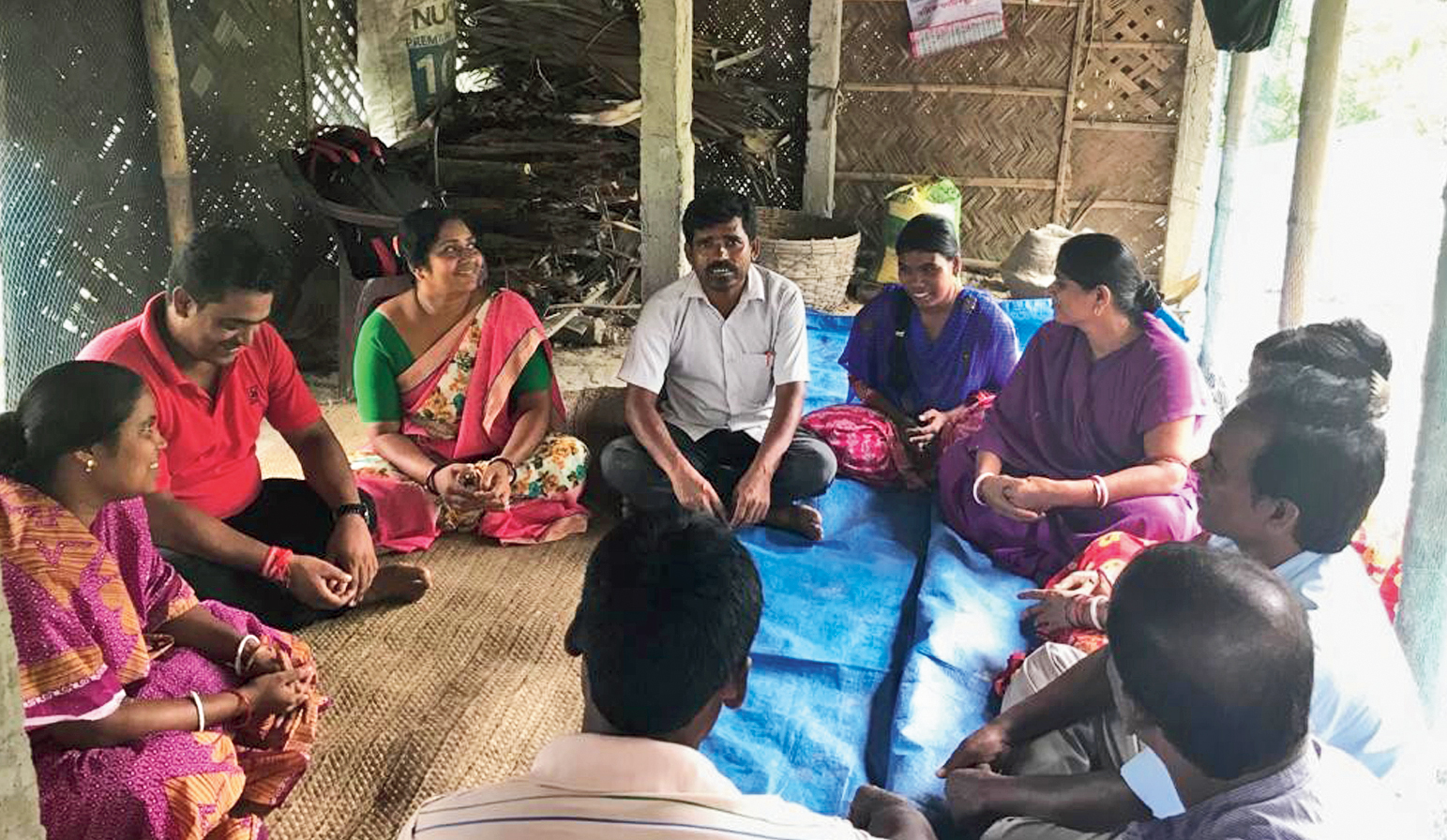Groups of children in 80 villages of Sandeshkhali I in North 24-Parganas are helping prevent abuse and trafficking of kids hired as domestic help in cities.
From passing on information to the village authorities about vulnerable classmates to intervening and counselling parents, the children are actively involved in bringing about change. The older and more experienced among the children train the newer members.
The children’s groups, along with child protection committees — comprising panchayat representatives, anganwadi workers, teachers, health centre workers and children — and NGOs, have been able to stem the drain of minor girls to cities as domestic help, where they are often abused and tortured. Some rescued girls have also joined the children’s groups.
“The children in our team act as the chief informers, seeking help whenever their intervention does not suffice,” said Bishnupriya Podder, an adult member of a child protection committee.
Ninety per cent of the families in these villages would earlier send their daughters aged 13 to 16 to Calcutta, Delhi and other cities to work as domestic help. Agents and sub-agents of various placement agencies would go around the villages, targeting school dropouts and girls from poorer families.
Most of these girls had to endure months of starvation and abuse at the hands of their employers.
“My aunt, who worked as a house help in Calcutta, convinced my parents to take me out of school in Class VIII and send me to work in a house in the city. My parents agreed, thinking I would have a better life,” a rescued girl said. “Initially my job was to look after a child but slowly more chores were piled on me. I got little food, no wages, was beaten up and not allowed to leave the house. Even my aunt was not allowed to see me.”
The child protection committee of her village, with the help of partner NGOs, tracked her down a year later and she was rescued. She has gone back to school and is an active member of a children’s group. “I want to go to college and join the police force in future,” said the 17-year-old.
Social workers said most parents were not even aware of the physical and mental abuse that awaited the daughters they sent to work.
“Our awareness drive met with resistance initially as parents thought we were blocking their source of income and a better life for their child. Some would raise the alarm months after the child went missing and no wages came home,” said Hridaychand Ghosh, the director of Dhagala Social Welfare Society, an organisation that has been working in association with NGO Save the Children to set up children’s groups and child protection committees in villages.
“Placement agents would typically hire sub-agents to pick up vulnerable girls. The girls would be sorted according to their looks and used for various services. The prettier ones went to brothels while the rest were hired as household help, especially in Delhi. They would seldom get wages as the money was often paid directly to the placement agent. The girls were often beaten up and overworked,” Ghosh said.
The model that these 80 villages have been following is now being emulated by other villages in the area.
“These villages have managed to curb the drain of minors to cities as domestic help, but the abuse continues elsewhere in the state. We are pushing the labour department to register and regularise placement agencies. The panchayat also should keep tabs on children leaving the village for work,” said Chittapriyo Sadhu, the general manager-state programme (West Bengal and Assam) of Save the Children.
A child volunteer said child marriage and addiction were the new menaces they were grappling with.
“We face a lot of social pressure and opposition while trying to protect our classmates from early marriage, yet we don’t give up. We call the elders for help only when our efforts fall short,” said the Class XII boy.
A girl whose parents had arranged for her marriage sought her friends’ help. “They convinced my parents. I am in Class X now and have also joined the children’s group,”he said.










